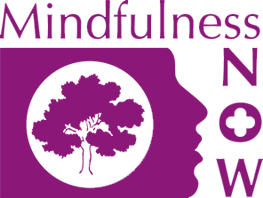It’s certainly been a challenging 18 months hasn’t it! Who would’ve thought that our lives would change so dramatically virtually overnight towards the end of March 2020? Many would say that their lives were put on hold completely. Not only that but many of us had to contend with personal loss and the grief that followed – not an easy task at the best of times but when coupled with restrictions and social distancing, everything was a whole lot more challenging.
So, you’d think that with the advent of those restrictions easing completely over the coming weeks and months everyone would be simply jumping for joy! And, of course, many are. But for a number of people this change in proceedings brings its own set of challenges and potential pitfalls. You see, as a species we tend not to like change. We get used to things as they are. When the first Lockdown occurred in March last year, some people found it incredibly stressful – the thought of not being free to go wherever we liked, to see whoever we chose to, whenever we wanted (things that we’d taken so much for granted) sent us into a downward spiral. But as things went on, perhaps we started to get used to this ‘new normal’ – working from home, avoiding the morning rush hour, seeing friends on video chats rather than going out to a pub or restaurant, having the time to spend in nature, to exercise more, to watch that box-set that we’d kept for a rainy day. It all started to feel ok. Even the masks that we were instructed to wear gave us a sense of safety once the initial embarrassment and discomfort wore off.
And so now we are told that none of these restrictions need be in place anymore – we can suddenly go wherever we want, do whatever we want, with whoever we want… even mask wearing is no longer mandatory. And that should just feel great! Shouldn’t it?… But does it? There’s obviously still a risk out there, the news tells us that every day. And we’ve kind of got used to doing things a bit differently, haven’t we? Do you remember? As a species we tend not to like change.
Now, for many people, this easing of restrictions might feel a bit disconcerting, but they’ll cope just fine. But for others it will be challenging beyond words. Mindfulness can help in both scenarios.
Mindfulness helps us to train our minds to understand our minds. Far from asking us to have a positive outlook, but rather to befriend the more negative aspects of our thinking. So, we may still experience emotions such as sadness, frustration and fear (after all we are only human). But, with mindfulness as a framework to look out from, we may experience these emotions in a fundamentally different way and, as a result, they may no longer feel quite so overwhelming.
Mindfulness helps us to understand what’s going on – in our minds and in our bodies. It allows us to take a metaphorical step back to observe things and to take stock so that, instead of reacting in unhelpful ways, we may begin to respond in a more gentle, self-compassionate kind of way.
In a nutshell, mindfulness doesn’t take away life’s difficulties. How could it? Instead, it helps you to be ‘ok’ with them. And, rather curiously, this can help things to feel a little easier.
All of us have a sense of responsibility towards others as well as ourselves as we, in the UK at least, begin to emerge from this pandemic. In particular, we as mindfulness teachers may recognise that we have a unique opportunity to help those who might be facing struggles. They might be frontline workers – doctors, nurses, paramedics – who are now suffering from the after-effects of trauma; they might be people who have lost loved ones as a result of Covid; they might be people who have themselves fallen victim to the virus but have recovered; they might be people suffering from the effects of Long Covid. They might also be people whose lives have changed simply as a result of all the changes that have happened in the last eighteen months.
Everything changes – and mindfulness helps us to be ok with that.
Rachel Broomfield





